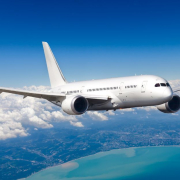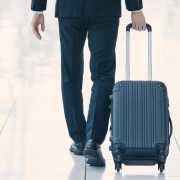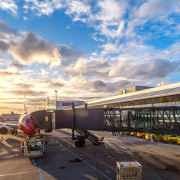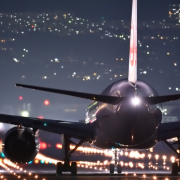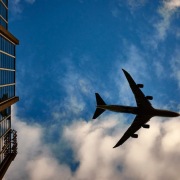Consumer protection organizations in several EU Member States are currently challenging airlines’ baggage policies. Their objective is that every passenger has the right to bring hand luggage on board free of charge – regardless of the ticket category purchased.
This article provides an overview of the relevant legal framework and considers whether the arguments put forward by consumer protection organizations are convincing.
Background
Today, some airlines – particularly so-called “low-cost carriers” – generally offer three ticket categories with the following baggage rules:
- Lowest category: only one “personal item” is allowed. This typically means a bag or backpack that fits under the seat in front, usually with maximum dimensions of 40x30x20.
- Middle category: one personal item plus one piece of hand luggage is permitted. “Hand luggage” generally refers to a suitcase or bag that fits into the overhead compartment, usually with maximum dimensions of 55x40x20.
- Highest category: one personal item plus one checked bag is permitted. “Checked baggage” is stored in the aircraft’s cargo hold and may not exceed dimensions of 80x120x120.
Consumer protection organizations now seek to establish that every passenger has the right to bring hand luggage without paying an additional fee. They base their arguments in particular on Articles 22 and 23 of Regulation (EC) 1008/2008 (“Regulation 1008/2008”) and on a 2014 judgment of the Court of Justice of the European Union (CJEU) in Case C-487/12.
What Does Regulation 1008/2008 Cover?
This regulation primarily governs the operation of air services in the EU – for example, licensing requirements and access to routes – but also includes provisions on ticket prices in Articles 22 and 23.
Article 22 establishes that air carriers are free to set their fares and rates. While this may seem obvious today, until the liberalization of air transport within the EU, starting in the 1980s, prices were tightly regulated and required government approval. This liberalization led to increased competition and, with it, lower fares – making air travel affordable for the broader public.
Article 23 acts as a counterbalance to Article 22, requiring that final prices for air services must always be displayed clearly. These prices must include the fare itself as well as all unavoidable and foreseeable taxes, charges, surcharges, and fees. Costs not included in these final prices are deemed “optional price supplements” and must be presented clearly and transparently at the start of the booking process, with acceptance on an opt-in basis.
Can Regulation 1008/2008 Support the Consumer Organizations’ Claims?
Consumer protection organizations now rely on a judgment of the Court of Justice of the European Union from 2014 in case C-487/12.
In the underlying proceedings, a passenger purchased several low-cost flight tickets from a Spanish airline but was required to pay a fee of EUR 10 per suitcase and flight for checked baggage. The passenger considered this to be in breach of a Spanish law that required airlines to transport checked baggage up to a certain amount.
On the basis of the alleged violation of this law, the airline was fined by a Spanish authority. The airline, however, challenged the decision before the Spanish courts, arguing that the Spanish law was contrary to European law because it infringed its right to freely set prices under Article 22 of Regulation 1008/2008. The question of whether the Spanish law was compatible with European law was ultimately referred to the CJEU for a preliminary ruling.
In those proceedings, there was initial uncertainty about the precise interpretation of the Spanish law. According to the referring Spanish court, the carriage of checked baggage had to be provided free of charge, whereas the Spanish government, in its submissions to the CJEU, argued that carriage was mandatory but not necessarily free of charge. Based on its established case law, the CJEU decided to follow the interpretation of the referring court when assessing the legal situation.
The CJEU’s Ruling in Case C-487/12
The CJEU addressed whether airlines’ pricing freedom includes the right to charge a surcharge for checked baggage. To this end, the Court analyzed Articles 22 and 23 of Regulation 1008/2008.
The CJEU first established that these provisions also apply to the pricing of baggage services. It then addressed the question of whether the price charged for checked baggage constitutes an unavoidable and foreseeable component of the airfare (and therefore forms part of the “final price”), or whether it is instead an “optional price supplement” for a service that complements the air transport service.
Taking into account the business practices of airlines – particularly low-cost carriers – which had evolved over the years, the CJEU concluded that the costs of checked baggage constitute merely optional supplements. The carriage of checked baggage was therefore not regarded as mandatory or indispensable for the transport of passengers. As a result, checked baggage does not fall within the “final price”, and airlines clearly retain the right, within their pricing freedom, to charge an additional fee for its carriage. This right was infringed by the Spanish law, which (according to the interpretation of the referring Spanish court) required the carriage of checked baggage free of charge. The CJEU‘s decision therefore favored the airline concerned.
However, the CJEU also stated in its reasoning that its considerations regarding checked baggage cannot be extended to hand luggage. In the CJEU’s view, the carriage of hand luggage is an indispensable element of passenger transport and therefore forms part of the final price. The CJEU expressly stated that “no surcharge may be levied” for hand luggage, provided its weight and dimensions “meet reasonable requirements” and it complies with applicable safety rules.
It is precisely these findings that consumer protection organizations now rely upon in asserting their demand for free carriage of hand luggage.
Our View
In our opinion, the arguments of the consumer protection organizations are not well-founded and would not necessarily lead to a consumer-friendly outcome.
On the one hand, in case C-487/12, the CJEU itself stated that no surcharge may be imposed for hand luggage if its weight and dimensions “meet reasonable requirements.” The fact that airlines – even in the cheapest ticket category – allow passengers to carry one “personal item”, usually a bag or backpack that fits under the seat in front, was neither addressed in the CJEU’s judgment nor in the Advocate General’s opinion during the preliminary ruling proceedings.
In his opinion, the Advocate General essentially offered two reasons why hand luggage must be included in the ticket price: first, unlike checked baggage, hand luggage remains under the sole responsibility of the passenger and does not create costs for handling, tracking, or storage on the part of the airline; and second, the ability to keep personal belongings considered highly valuable and absolutely essential under one’s own supervision pertains to human dignity.
The first argument, however, is not convincing. The aircraft types most commonly used for short-haul flights in Europe – the Airbus A320 and the Boeing 737 – are configured with around 130 to 200 seats but only have space for around 90 to 110 pieces of hand luggage. In practice, this means that on many short-haul flights passengers must be asked to check in their hand luggage free of charge, leading to these bags being carried in the aircraft’s cargo hold. In the end, numerous pieces of hand luggage fall under the airline’s responsibility, generating various costs (even if the airline does not usually pass these costs on directly to the affected passenger).
The second argument is equally unconvincing, given that even in the lowest category passengers are permitted to bring a personal item. It is surely compatible with “human dignity” to restrict the carriage of valuable belongings to those that fit in luggage of such size. Moreover, due to the aforementioned discrepancy between the number of seats and available storage in the overhead compartments, it is practically impossible for airlines to guarantee every passenger the right to bring a cabin suitcase on board.
On the other hand, in our view, the intended outcome – the obligation to carry hand luggage free of charge, or the prohibition of ticket categories that exclude hand luggage – is not consistent with the objectives of Articles 22 and 23 of Regulation 1008/2008. As the Advocate General emphasized repeatedly, Article 23 was introduced to complement the pricing freedom of Article 22 with a requirement of transparency, so that consumers could properly assess fares when comparing competing offers. Such transparency is desirable – and is also ensured by other provisions, such as those governing General Conditions of Carriage. If an airline clearly and transparently informs potential passengers during the booking process which ticket categories exist and what rights are associated with each, there is no justification for restricting it in its pricing and business model.
Finally, it is doubtful whether the outcome sought by consumer organizations – mandatory free hand luggage – would actually be consumer-friendly. It is likely that the “low-cost carriers” most affected by such a requirement would simply abolish the cheapest ticket category rather than allowing passengers to bring hand luggage at that fare. Passengers who currently opt for this category because they consider a personal item sufficient for their journeys would then be forced to pay higher fares.
If some of them decided to bring a cabin suitcase in addition to their personal item – since this is now included in the ticket price – this would increase the aircraft’s weight, resulting in higher fuel consumption, which both harms the environment and represents a significant cost factor for airlines. Additional costs incurred by airlines in handling hand luggage that cannot be accommodated in the cabin due to space limitations further raise the concern that consumer organizations’ efforts could ultimately lead to higher ticket prices for all passengers.
Don’t hesitate to contact our Aviation Team to learn more about this topic.

